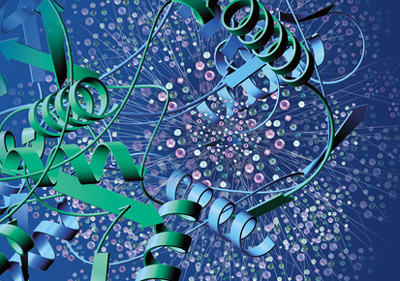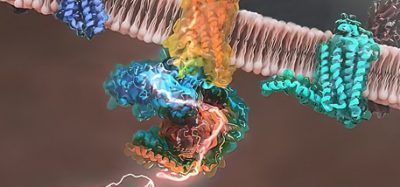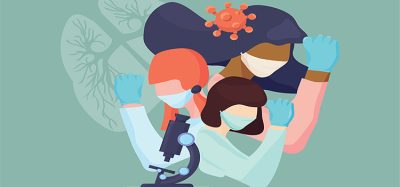Growth hormone’s influence on neuropsychiatric disorders
Posted: 10 January 2024 | Ellen Capon (Drug Target Review) | No comments yet
The discovery of a mechanism involving anxiolytic effects of GH may lead to the development of new classes of anxiolytic drugs.

Scientists at the University of São Paulo (USP) have gained a better understanding of growth hormone’s (GH) role in mitigating anxiety and have also identified the population of neurons responsible for modulating the influence of GH on the development of neuropsychiatric disorders.
GH is secreted by the pituitary gland into the bloodstream, promoting tissue growth throughout the body by means of protein formation, cell multiplication and cell differentiation. It is also a powerful anxiolytic. Supported by the Sao Paulo Research Foundation (FAPESP), the researchers found that male mice lacking the GH receptor in a group of somatostatin-expressing neurons showed increased anxiety. Somatostatin is a peptide that regulates numerous physiological processes, like the release of GH and other hormones.
Also, they found that the absence of the GH receptor in somatostatin-expressing neurons decreased fear memory, a key feature of post-traumatic stress disorder, in males and females. This discovery could contribute to the development of new classes of anxiolytic drugs.
Dr José Donato Júnior, the last author of the article and a professor at USP’s Biomedical Sciences Institute (ICB-USP), stated: “Our discovery of the mechanism involving anxiolytic effects of GH offers a possible, merely chemical, explanation for these disorders, suggesting why patients with more or less GH secretion are more or less susceptible to them.”
In the study, the researchers conducted three types of experiment involving mice: open field, elevated plus maze, and light/dark box. These well-established experiments for analysing behaviour tested the animals’ capacity to explore the environment and take risks.
The study’s findings did not suggest any reasons for the lack of increased anxiety-like behaviour in female mice. Donato detailed: “We believe it may be related to sexual dimorphism. We know the brain region containing the neurons we studied is a bit different in males and females. Some neurological disorders are also different in men and women, probably not by chance.”
Neuropsychiatric disorders
Globally, many individuals suffer from neuropsychiatric disorders, with anxiety and depression being the most common. However, their causes have yet to be fully revealed. Scientists believe they may be due to multiple factors, including stress, genetics, social pressures, economic difficulties, and gender issues.
Furthermore, there is growing evidence that hormones have a crucial part in regulating various neurological processes and influencing susceptibility to neuropsychiatric disorders. For example, changes in levels of sex hormones like oestradiol affect anxiety, depression and fear memory in rodents and humans. While the association between anxiety symptoms and low endogenous oestradiol levels might suggest a therapeutic effect of oestrogens, both clinical and preclinical studies have reported that treatment with oestradiol yields contradictory results. Using rodent models, studies have shown that the effect of oestradiol on anxiety-like behaviour may be dependent on both the dose administered and the behavioral testing paradigm.1
Preliminary results of other studies indicate that glucocorticoids, steroid hormones such as cortisol as well as synthetic forms such as prednisone and dexamethasone, could be involved in the development of neuropsychiatric disorders.
“We demonstrated that GH changes the synapses and structurally alters the neurons that secrete somatostatin,”
The regulatory mechanism in neurons associated with such disorders in the case of GH had not yet been discovered. “We demonstrated that GH changes the synapses and structurally alters the neurons that secrete somatostatin,” Donato said.
The study also demonstrated that anxiety, post-traumatic stress, and fear memory are different facets of the same neuronal circuit. Donato said that anxiety can be defined as excessive fear or distrust, while fear memory relates to an adverse past event that produced a brain alteration. This initiates an exacerbated response whenever the subject is exposed to a similar stimulus, such as weeping, tremors, and paralysis.
“Research has shown that ghrelin-induced GH secretion increases in chronic stress, favouring the development of fear memory and post-traumatic stress in the animal’s brain,”
Donato explained: “All this happens in the same neuron population, which expresses the GH receptor. In our experiment, fear memory was reduced in mice when we switched the GH receptor off. This means the capacity to form fear memory is impaired. It may be the case that GH contributes to the development of post-traumatic stress.”
Further evidence for this is that chronic stress raises the level of the ghrelin hormone, a powerful trigger of GH secretion. “Research has shown that ghrelin-induced GH secretion increases in chronic stress, favouring the development of fear memory and post-traumatic stress in the animal’s brain,” Donato added.
GH’s role in neurological disorders
GH is indispensable during childhood, adolescence, and pregnancy when its secretion peaks. It naturally declines in old age. GH deficiency can lead to dwarfism, which is mostly manifested from two years of age, stopping growth during childhood and adolescence.
“Previous research involving patients with GH deficiency showed a higher prevalence of anxiety and depression in these individuals, but the cause hadn’t yet been established. Some authors blame it on problems of self-image and bullying due to short stature,” Donato said.
The study showed the essential role played by GH in these disorders without the presence of potential confounders such as body image issues. Donato explained: “We were able to find out how much is due directly to the effects of GH or the indirect effects of growth deficit. Because we were able to identify the mechanism involving GH, we know it’s a direct cause of anxiety disorder, and this knowledge can facilitate the development of therapies.”
The scientists plan to investigate the role played by GH during pregnancy. “We know one of the peaks in GH production occurs during pregnancy. We also know that the prevalence of depression rises in this period owing to post-partum depression. Of course, these disorders also reflect social, economic, and other kinds of pressure, but we mustn’t forget that the rise in hormone secretion during and after pregnancy can dysregulate brain functioning, also leading to this kind of mental illness,” Donato concluded.
An article on the study is published in the Journal of Neuroscience.
Reference
1 Borrow AP, Handa RJ. Chapter Two – Estrogen Receptors Modulation of Anxiety-Like Behaviour. Vitamins and Hormones 2017 [2024 January 3]; 103:27-52. Available from: https://www.sciencedirect.com/science/article/abs/pii/S0083672916300425
Related topics
Drug Development, Hormones, Neurons, Neurosciences
Related conditions
Anxiety, Depression, Fear memory, growth-hormone resistant dwarfism, Post-traumatic stress disorder (PTSD)
Related organisations
University of São Paulo (USP)
Related people
Dr José Donato Júnior (USP)







